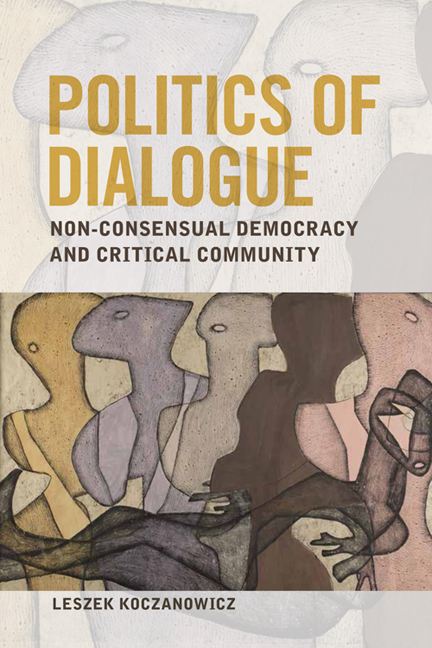1 - Democracy and Everyday Life
Published online by Cambridge University Press: 05 August 2016
Summary
Pragmatism as a Response to the Crisis of Democracy
It is now an almost trivial observation that pragmatism has developed a theoretically rich concept of democracy, in which John Dewey's reflection on society and its institutions has a major share. The historical context and significance of Dewey's notion of democracy have already been comprehensively discussed in a number of studies, so I feel at least partly relieved from repeating these findings. What remains to be done is to focus on how these pragmatic insights can be employed to advance my ideas of non-consensual democracy and critical community. For contemporary readership, the crucial point in Dewey's reasoning is his emphasis on the concept of democracy as an open-ended and never-ending endeavour. Dewey's idea of democracy appears to be especially attractive as a response to the notion of democracy as a stabilised set of institutions that are given indefinitely and need only a few corrections in particular circumstances.
Rather popular with some experts and politicians, such a concept of democracy is rightly criticised by Robert Mangabeira Unger as the ‘democratic perfectionism’ – that is, ‘the belief that a democratic society has a unique, indispensable institutional form. Once that form is secured, it creates a setting within which every individual who is not unlucky can raise himself to freedom, virtue, and happiness.’ Unger, of course, rejects this concept and insists instead on examining individual people's power to build up their social worlds. According to him, such a vision needs pragmatism as a requisite source of inspiration:
The major source of the attraction of these ideas lies in their focus on the picture of the human agent. According to this picture, the human agent is irreducible to any set of causal influences that may weigh upon him. He is incapable of being fully contained and governed by the social and cultural orders he develops and joins. For such a view, prophecy speaks louder than memory, and one lives for the future the better to live more freely and fully in the present. Orientation to the future is just another way of describing the structures, of organization and of consciousness, that can define a present that provides us with the instruments of its overcoming.
- Type
- Chapter
- Information
- Politics of DialogueNon-consensual Democracy and Critical Community, pp. 6 - 41Publisher: Edinburgh University PressPrint publication year: 2014



